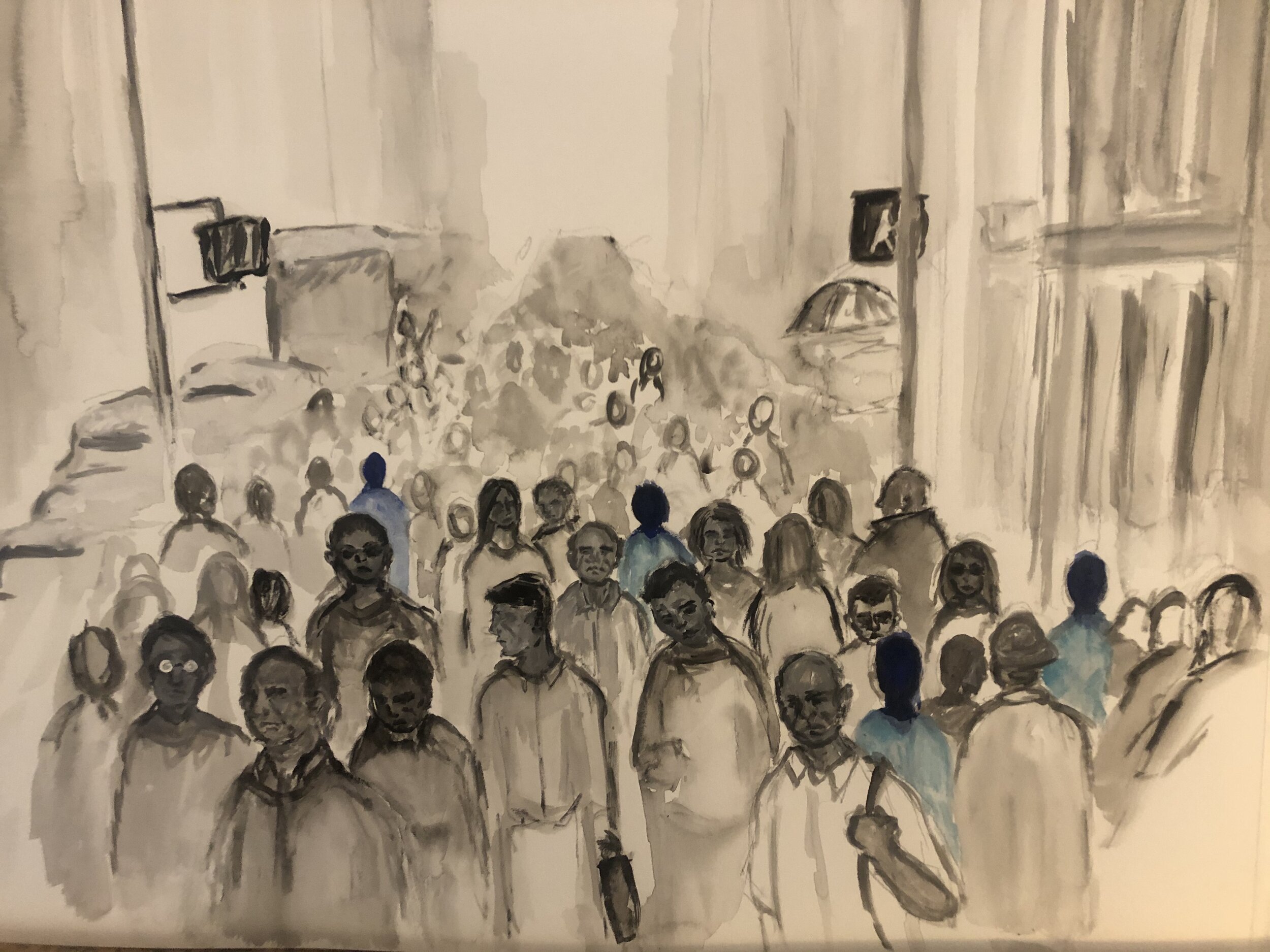Through collage art and poetry, a pathologist comes to understand that our anatomical selves are made up of the same building blocks that comprise all life on earth.
Read moreCaregiving: When the Patient is Your Mother. A Reflection by poet Brian Ascalon Roley
A writer revisits his childhood memories and, in doing so, reflects on the evolving relationship between parent and child as both grow older.
Read moreAn Abortion Doula and the Greatest Professional Calling
A family physician reflects on her own experiences in handling her patients’ abortion stories and notices the parallels in her own practice with that of an abortion doula.
Read moreThe Gordian Knot in Healthcare: A reflection by critical care clinician & writer Cynthia Stock
A former critical care nurse attempts to untangle the Gordian knots found within medicine by close reading two pieces—including her own—published in this very journal.
Read moreTaking Him Apart Took Me Apart, Too: On medical school and anatomy class by Chrissie DyBuncio
A former physician reflects on the rite of passage undergone by all medical students: cadaver dissections in anatomy lab.
Read moreMoral Injury in Medicine: What it means by physician Frank Baudino
A family medicine physician with a background in medical volunteerism examines the risks of practicing healthcare on the front lines of war—be it in southern Sudan or the United States.
Read moreEveryone Has the Blues: Learning acceptance by paramedic Azhar Alhashim
A paramedic ponders the blues. “Understanding what affects our mood and causes a lack of energy or a feeling of unease or turmoil allows us to think about the solutions that can be put in place to get better. Some factors can be easily resolved, but others require a lot of introspection and external support—and sometimes, just acceptance.”
Read moreDesensitization to the Face of Death: A reflection by poet and medical student Catherine Read
A medical student examines the desensitization that imbues the study and practice of medicine—and advocates against it.
Read moreOn Brian Ascalon Roley’s "Caregiving"
A pediatric emergency physician reflects on the burning intensity found at the heart of caregiving.
Read moreLeading Change in Healthcare Through a Healing Nature
A pharmacist fiercely advocates for lasting change via a healing framework.
Read moreA Moment of Intimacy
A writer questions the dynamics that shape—as well as disguise—not only the clinical encounter, but also personhood, identity, and intimacy.
Read moreRepeat After Me: Questions about the brain in transition by writer Nancy Huggett
A caregiver reflects on the orienting power of repetition. and how such repetition allows us to anchor ourselves within our lived narratives.
Read moreHow Patients Teach Us by Catalina Flores
A nurse contemplates how and why patients are made to feel like burdens—simply for having several needs.
Read moreThe Tyranny of "Normal" in healthcare and healing by Dr. Kate Otto Chebly
A physician grapples with the tyranny of “normalcy” and how its unbending dictates can stifle the clinical encounter as well as patient care.
Read moreDescribing Cancer with Imagery and Metaphors by Sarah Smith, MD
A family physician considers the importance of metaphors and imagery when grappling with life-threatening, unimaginable illness.
Read moreWhen Visuals Become Verbal: The Art of Communicating Emotional States of Mind by Barbara West
© Blue Pajama Series - Crowd by Rachel Wyman Fall 2021 Intima
A writer and hospice nurse explores the parallels between one of her essays published in Intima and a studio art series previously published in this journal.
Read moreThe Importance of Touch in Medicine (and Beyond) by neonatologist Katherine C. White
A retired neonatologist recalls her time in the NICU when the specter of HIV loomed large—and laments the precautions against touch that have returned with the advent of the COVID-19 pandemic.
Read moreThe Lost Patient Narrative in our era of "EHR-Centered" Medicine: A Reflection by family medicine physicianJacqueline Redmer
A family medicine physician reflects on the true costs for the patient and the clinician of the increasing digitization of modern medicine.
Read moreOn "Where Are You, Mary Oliver?" A pediatric ER doctor contemplates what two poets taught her about healing
A pediatric emergency physician reflects on the enduring power and comfort of Mary Oliver’s poetry during difficult times.
Read moreThe Luxury of Walking Away: An MS4 meditates on time, isolation and the comforts of home
A medical student contemplates her roles as a physician-in-training and learns to appreciate the privilege she possesses—unlike her patients—in walking away from the clinical space.
Read more
